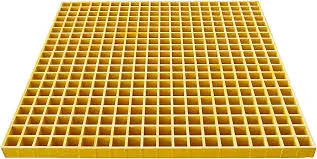
-
 Afrikaans
Afrikaans -
 Albanian
Albanian -
 Amharic
Amharic -
 Arabic
Arabic -
 Armenian
Armenian -
 Azerbaijani
Azerbaijani -
 Basque
Basque -
 Belarusian
Belarusian -
 Bengali
Bengali -
 Bosnian
Bosnian -
 Bulgarian
Bulgarian -
 Catalan
Catalan -
 Cebuano
Cebuano -
 China
China -
 China (Taiwan)
China (Taiwan) -
 Corsican
Corsican -
 Croatian
Croatian -
 Czech
Czech -
 Danish
Danish -
 Dutch
Dutch -
 English
English -
 Esperanto
Esperanto -
 Estonian
Estonian -
 Finnish
Finnish -
 French
French -
 Frisian
Frisian -
 Galician
Galician -
 Georgian
Georgian -
 German
German -
 Greek
Greek -
 Gujarati
Gujarati -
 Haitian Creole
Haitian Creole -
 hausa
hausa -
 hawaiian
hawaiian -
 Hebrew
Hebrew -
 Hindi
Hindi -
 Miao
Miao -
 Hungarian
Hungarian -
 Icelandic
Icelandic -
 igbo
igbo -
 Indonesian
Indonesian -
 irish
irish -
 Italian
Italian -
 Japanese
Japanese -
 Javanese
Javanese -
 Kannada
Kannada -
 kazakh
kazakh -
 Khmer
Khmer -
 Rwandese
Rwandese -
 Korean
Korean -
 Kurdish
Kurdish -
 Kyrgyz
Kyrgyz -
 Lao
Lao -
 Latin
Latin -
 Latvian
Latvian -
 Lithuanian
Lithuanian -
 Luxembourgish
Luxembourgish -
 Macedonian
Macedonian -
 Malgashi
Malgashi -
 Malay
Malay -
 Malayalam
Malayalam -
 Maltese
Maltese -
 Maori
Maori -
 Marathi
Marathi -
 Mongolian
Mongolian -
 Myanmar
Myanmar -
 Nepali
Nepali -
 Norwegian
Norwegian -
 Norwegian
Norwegian -
 Occitan
Occitan -
 Pashto
Pashto -
 Persian
Persian -
 Polish
Polish -
 Portuguese
Portuguese -
 Punjabi
Punjabi -
 Romanian
Romanian -
 Russian
Russian -
 Samoan
Samoan -
 Scottish Gaelic
Scottish Gaelic -
 Serbian
Serbian -
 Sesotho
Sesotho -
 Shona
Shona -
 Sindhi
Sindhi -
 Sinhala
Sinhala -
 Slovak
Slovak -
 Slovenian
Slovenian -
 Somali
Somali -
 Spanish
Spanish -
 Sundanese
Sundanese -
 Swahili
Swahili -
 Swedish
Swedish -
 Tagalog
Tagalog -
 Tajik
Tajik -
 Tamil
Tamil -
 Tatar
Tatar -
 Telugu
Telugu -
 Thai
Thai -
 Turkish
Turkish -
 Turkmen
Turkmen -
 Ukrainian
Ukrainian -
 Urdu
Urdu -
 Uighur
Uighur -
 Uzbek
Uzbek -
 Vietnamese
Vietnamese -
 Welsh
Welsh -
 Bantu
Bantu -
 Yiddish
Yiddish -
 Yoruba
Yoruba -
 Zulu
Zulu
frp trough cover protective solutions for industrial applications
FRP Trough Cover Protective Solutions for Industrial Applications
In the realm of industrial applications, the need for robust protective solutions is paramount. This need is increasingly being met by Fiber Reinforced Polymer (FRP) trough covers, which incorporate a range of materials designed to offer enhanced durability, safety, and efficiency. As industries continue to evolve, so do the materials and technologies that help ensure operational continuity and safety. FRP trough covers have emerged as a popular choice due to their unique properties and numerous advantages.
Understanding FRP
Fiber Reinforced Polymer is a composite material made of a polymer matrix reinforced with fibers, which can be made from glass, carbon, or aramid. The inherent strength of these fibers combined with the lightweight nature of polymers results in a versatile material that is resistant to corrosion, impact, and extreme temperatures. This robustness makes FRP an ideal choice for protective solutions in various industrial environments, particularly where environmental factors may compromise the integrity of standard materials.
Key Benefits of FRP Trough Covers
1. Corrosion Resistance One of the most significant advantages of FRP trough covers is their resistance to corrosion. Industries such as chemical processing and wastewater management are particularly prone to corrosive environments. Traditional metal covers often fail due to rust and degradation, while FRP maintains its structural integrity and appearance over time, thereby reducing maintenance costs and downtime.
2. Lightweight yet Strong FRP is notably lighter than metallic counterparts, which facilitates easier installation and handling without compromising strength. This characteristic is essential in environments where heavy machinery could pose safety risks or in applications where overhead cranes or lifting equipment are used.
3. Customizability FRP materials can be manufactured in various shapes, sizes, and colors, allowing for custom solutions that meet the specific needs of an industrial application. Whether it's covering troughs in a factory or protecting sensitive equipment in a laboratory, FRP can be engineered to suit various requirements, providing tailored solutions that enhance functionality and safety.
frp trough cover protective solutions for industrial applications

4. Thermal and Electrical Insulation FRP materials offer significant thermal and electrical insulation properties. This feature is particularly beneficial in environments where temperature control is critical or where electrical safety is of utmost importance. The non-conductive nature of FRP helps prevent accidents and enhances workplace safety.
5. Reduced Maintenance The longevity and durability of FRP trough covers significantly reduce maintenance requirements. Unlike traditional materials that require frequent inspections and replacements, FRP offers a low-maintenance solution that can withstand the rigors of tough industrial environments while providing peace of mind.
6. Eco-Friendly Options Modern FRP manufacturing processes have evolved to include eco-friendly materials and production techniques. Many manufacturers now offer sustainable FRP options that contribute to a greener industrial landscape, aligning with global efforts toward sustainability.
Applications in Various Industries
The versatility of FRP trough covers makes them suitable for numerous industries. In the chemical industry, where spills and leaks are common, these covers provide an additional layer of protection, preventing contamination and ensuring compliance with safety regulations. In the food and beverage sector, robust and hygienic FRP covers help maintain the quality of products while simplifying cleaning processes. Additionally, wastewater treatment facilities benefit from FRP's resistance to harsh chemicals and moisture, making them a reliable choice.
Conclusion
As industries face increasing pressures related to safety, efficiency, and environmental concerns, the adoption of innovative materials like FRP is becoming more prevalent. FRP trough covers not only offer unparalleled protection against a myriad of environmental factors but also do so with a lightweight, customizable solution that requires minimal maintenance. As we look forward to advancements in material science, the role of FRP in industrial applications is sure to expand, contributing to safer and more sustainable working environments. Embracing such protective solutions is not just a choice; it is a strategic decision that can lead to enhanced operational efficiency and reduced risks in a competitive industrial landscape.









